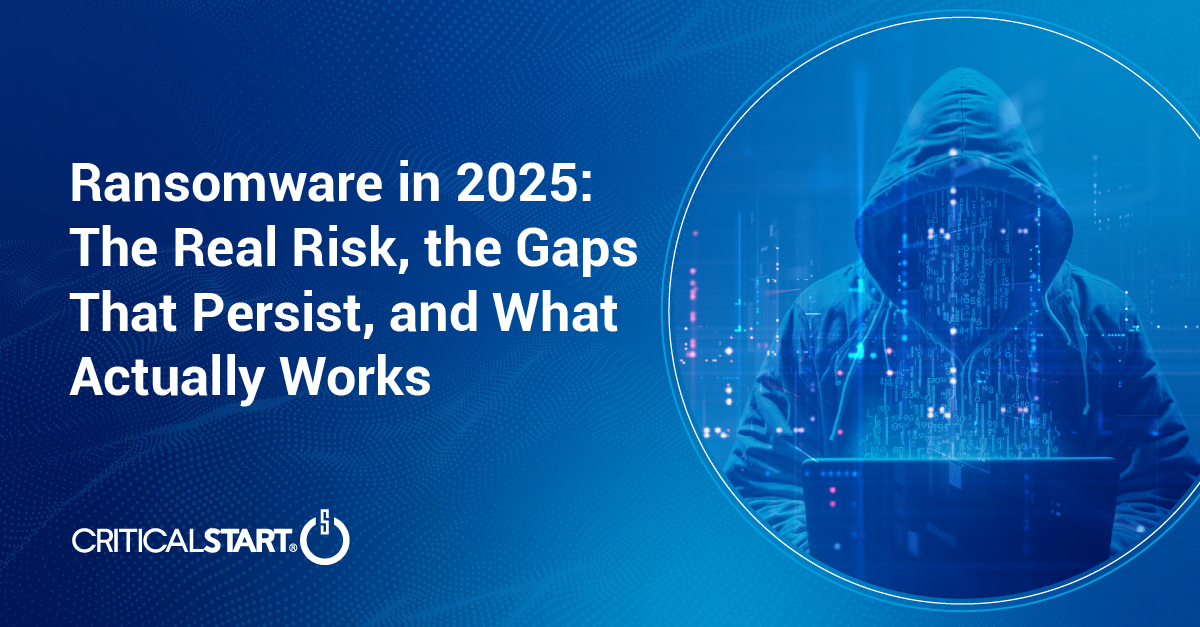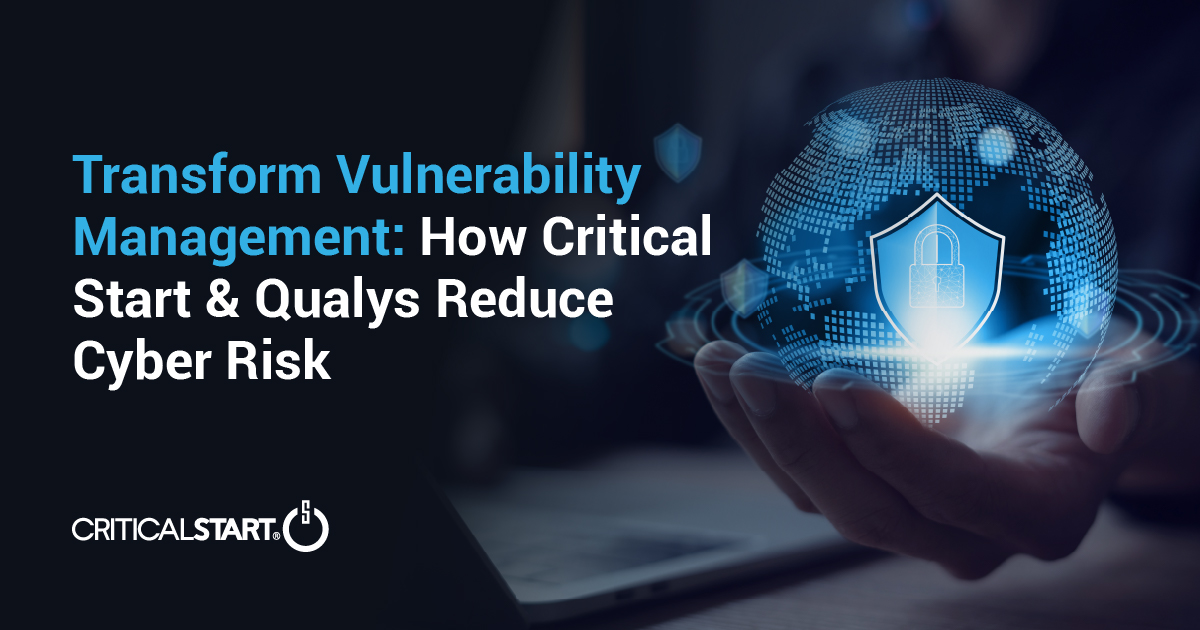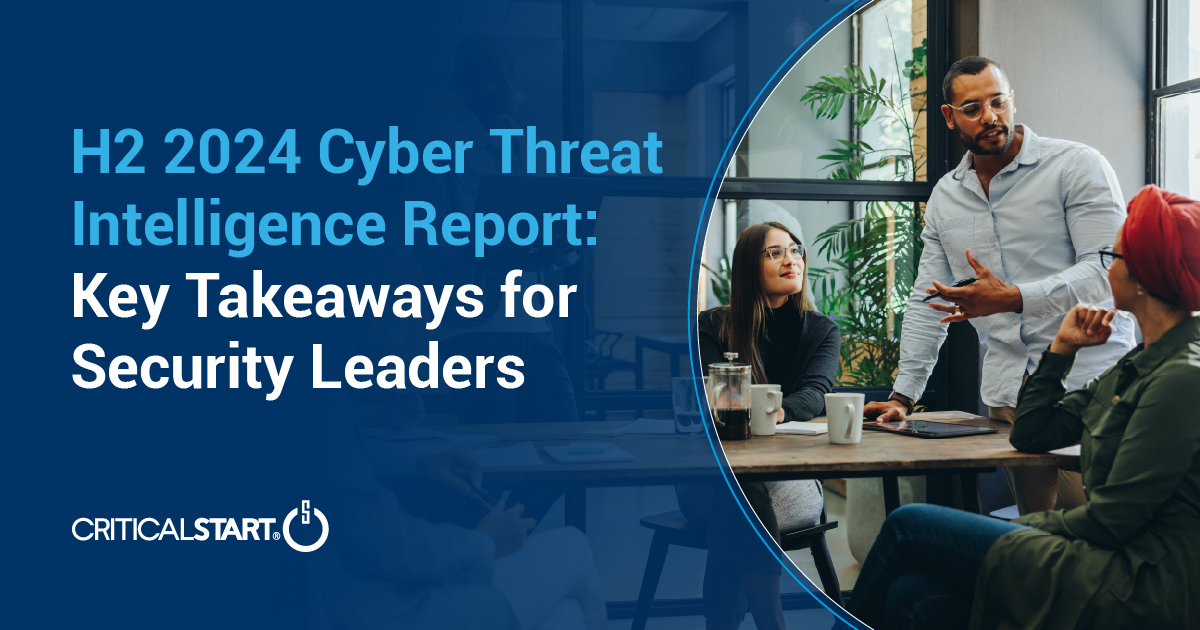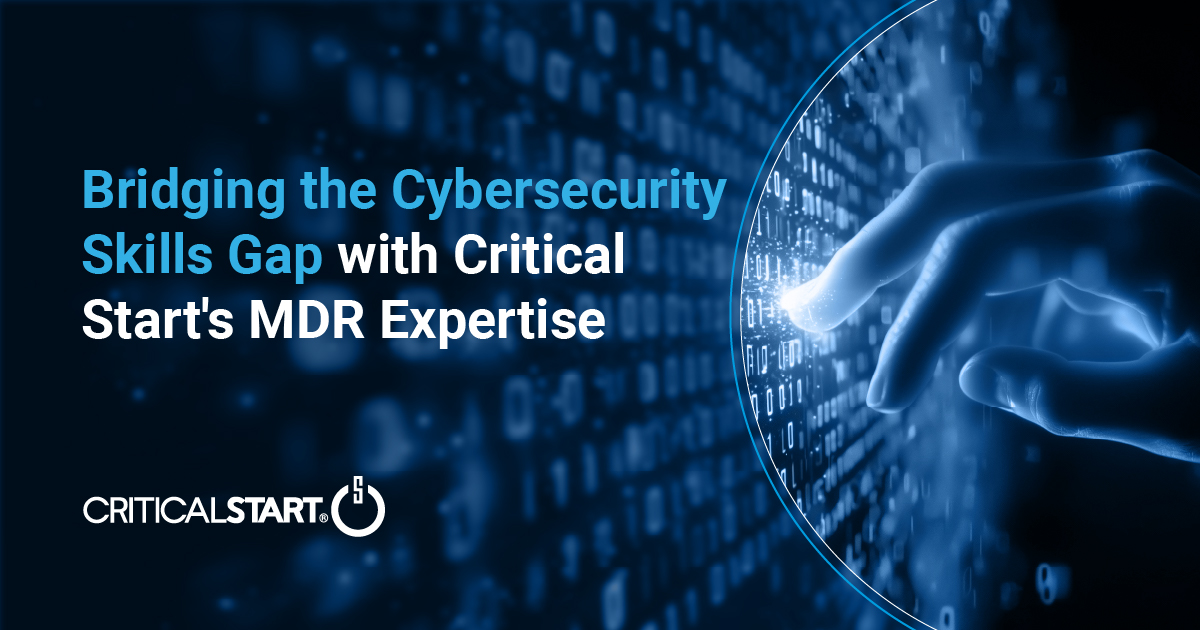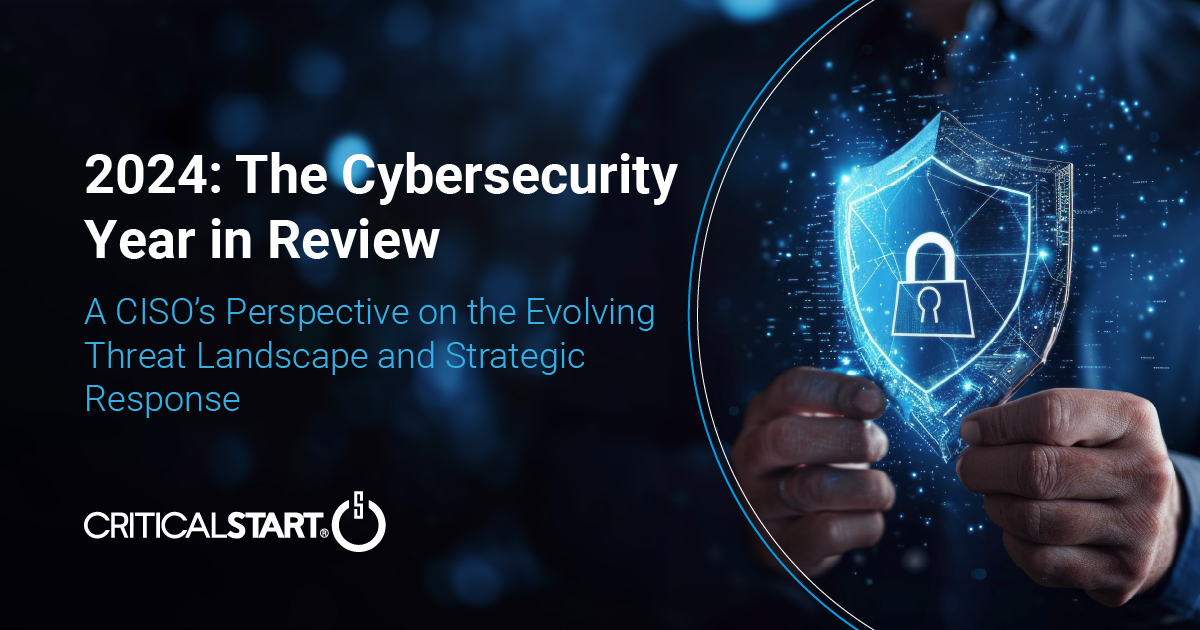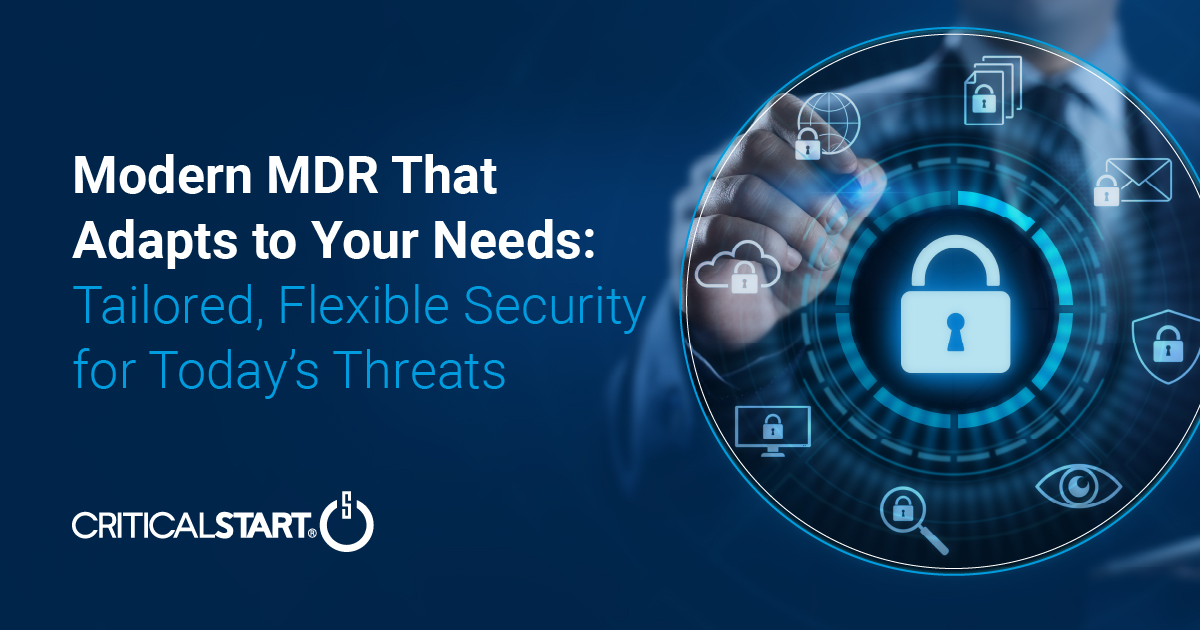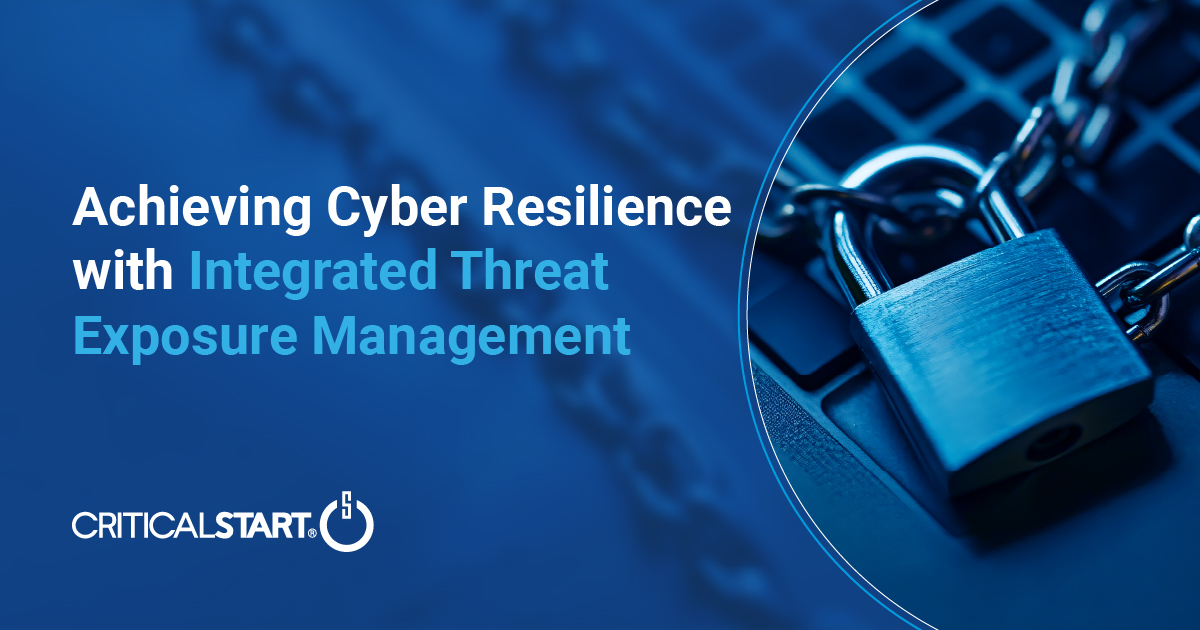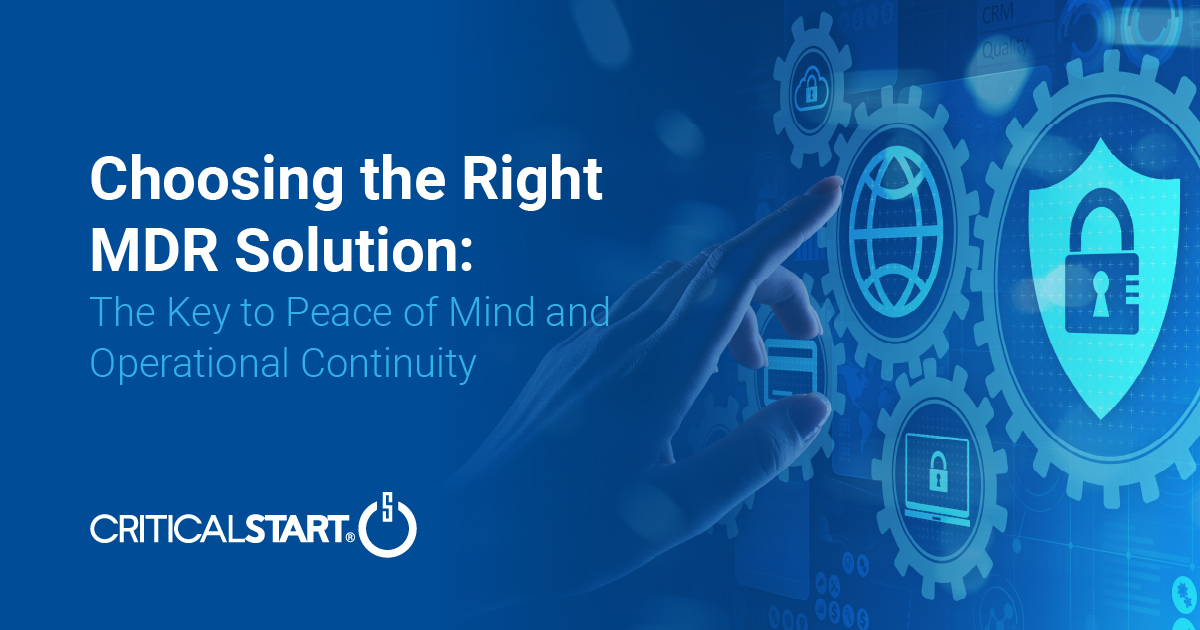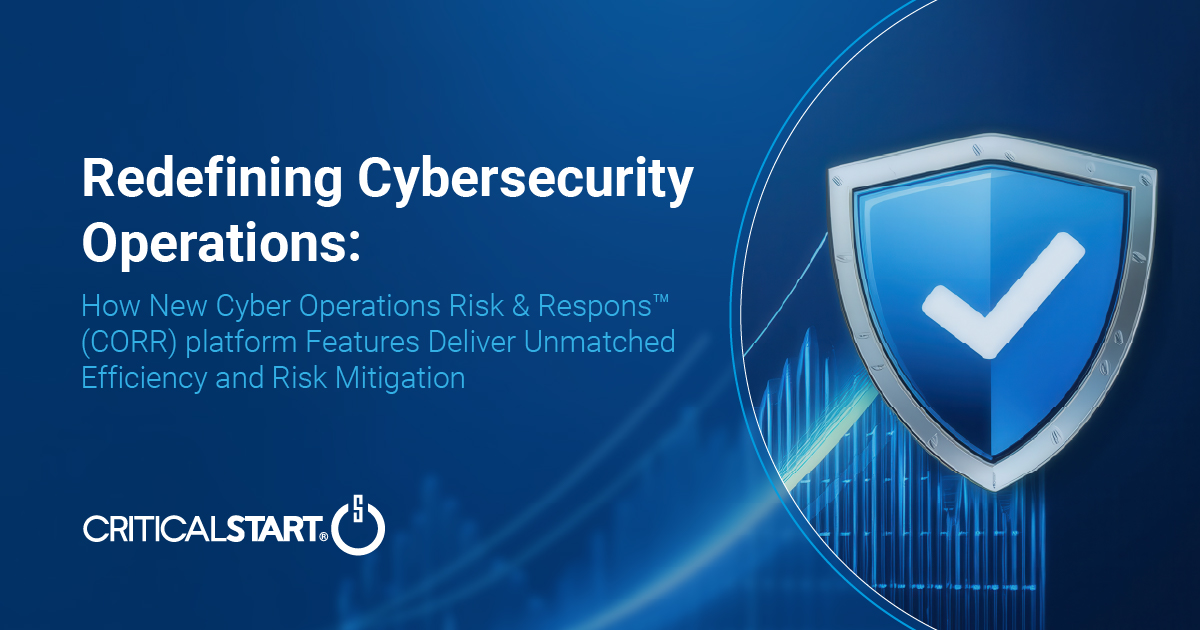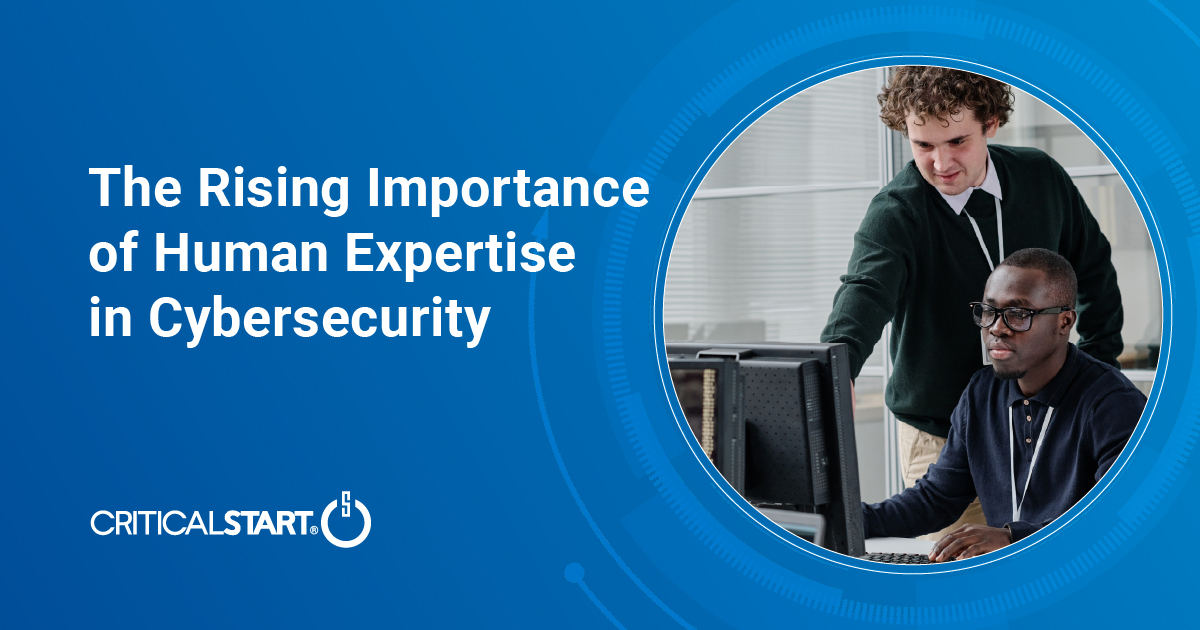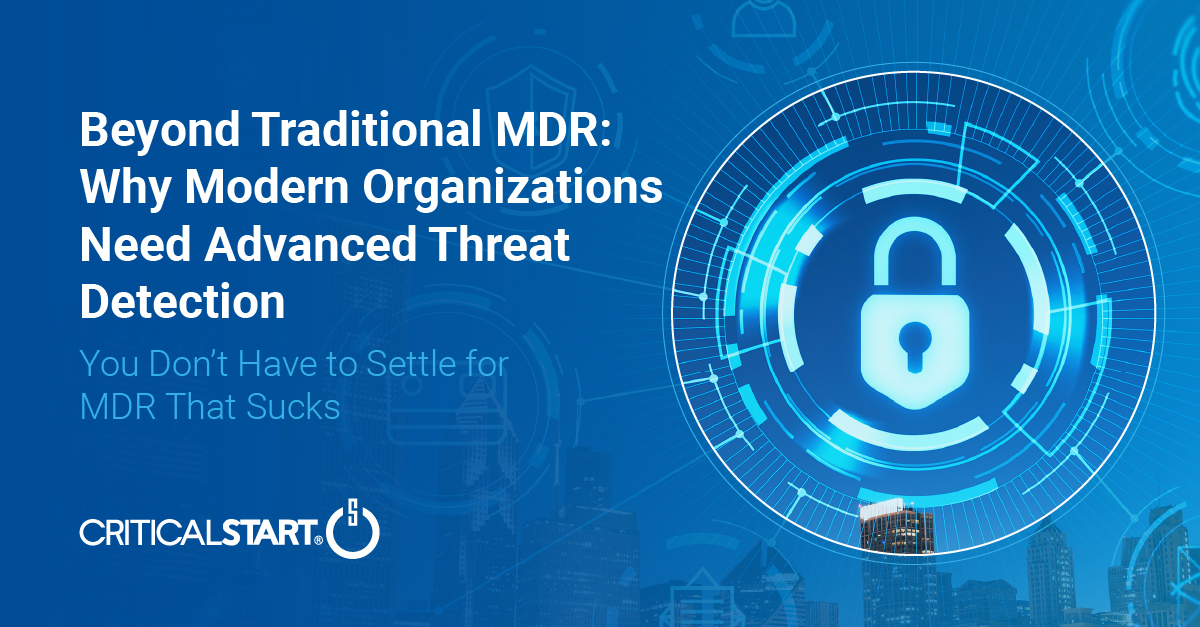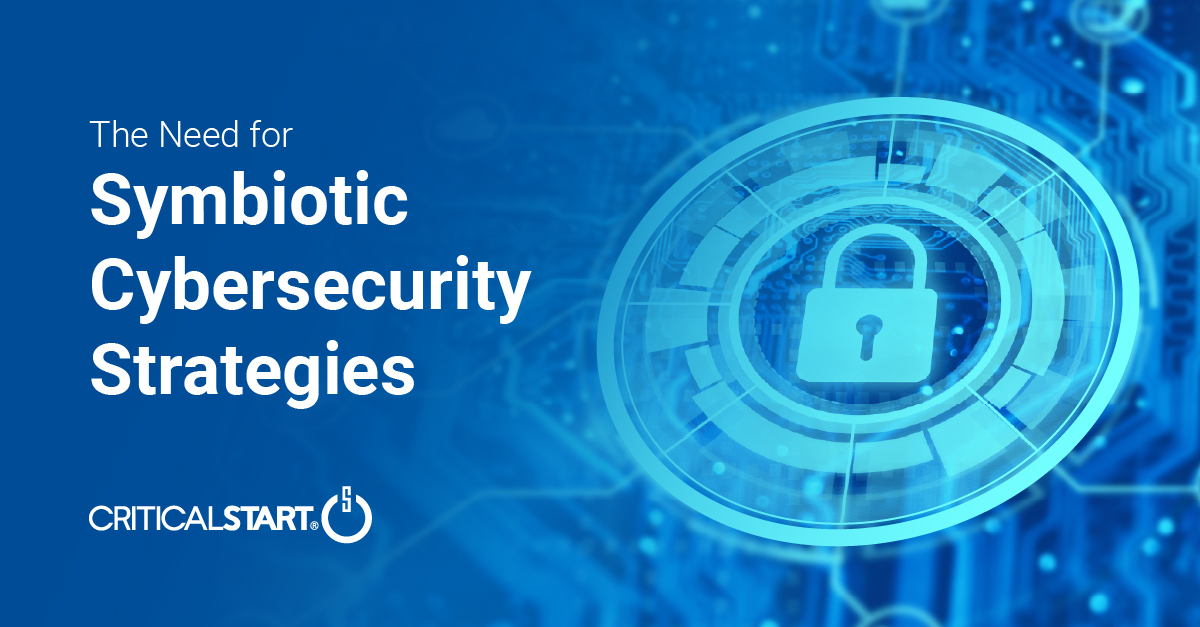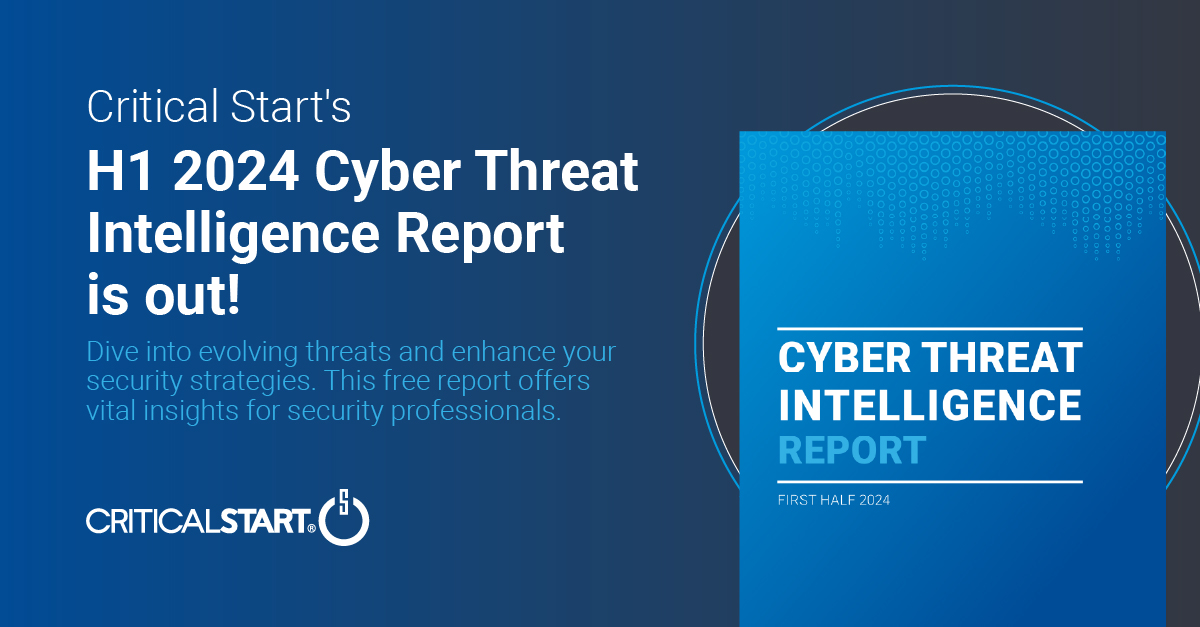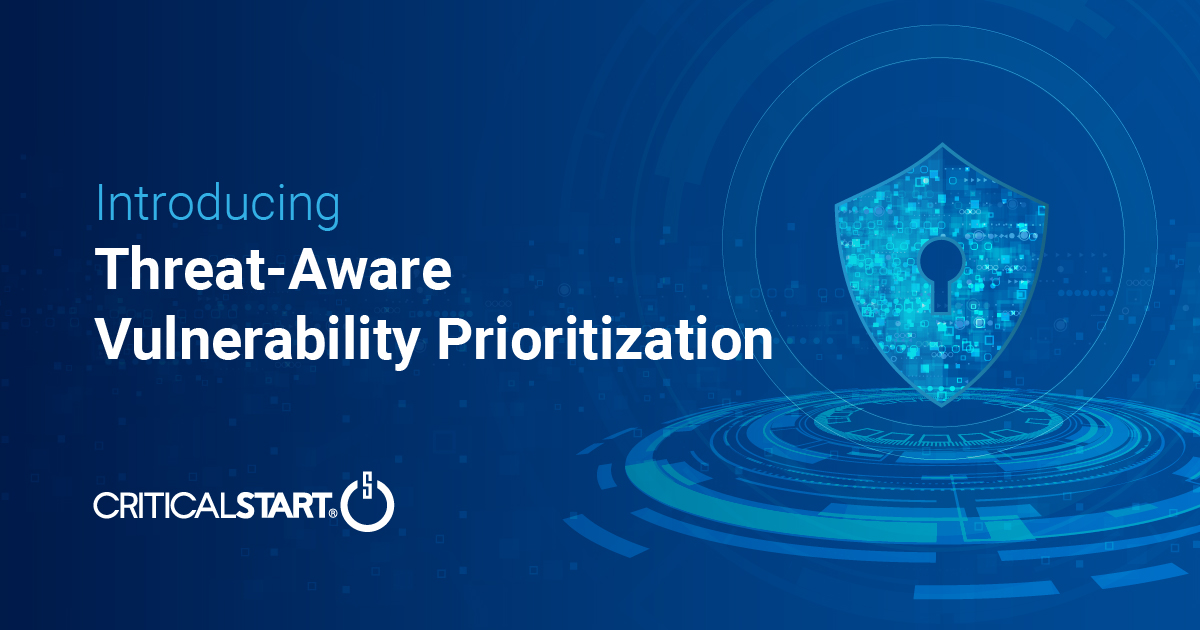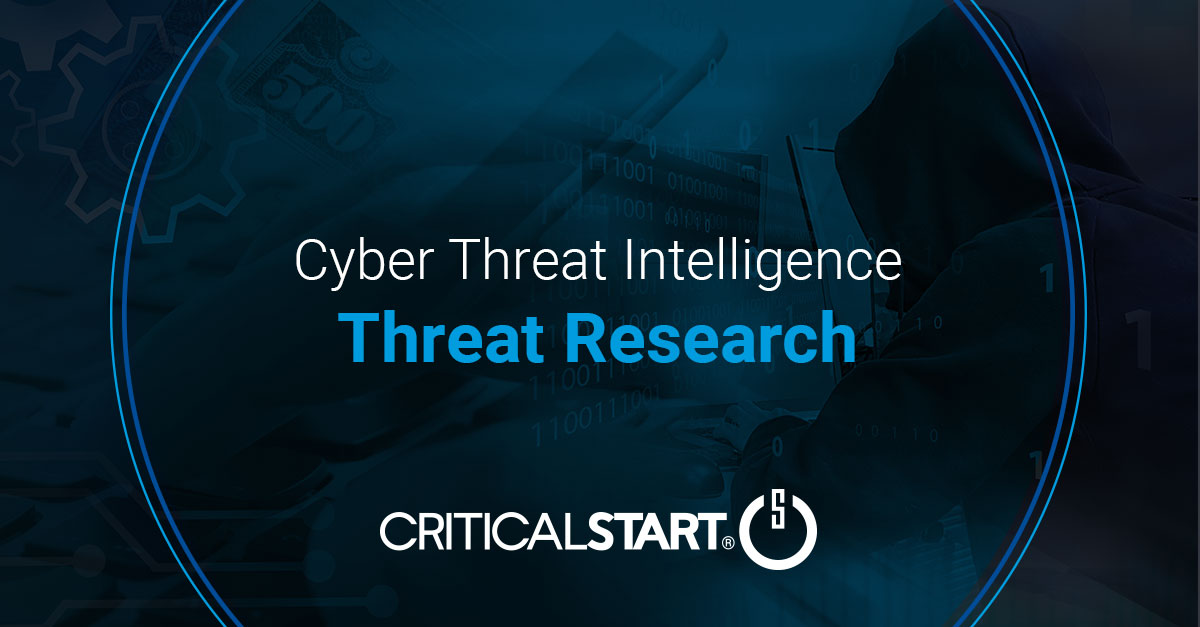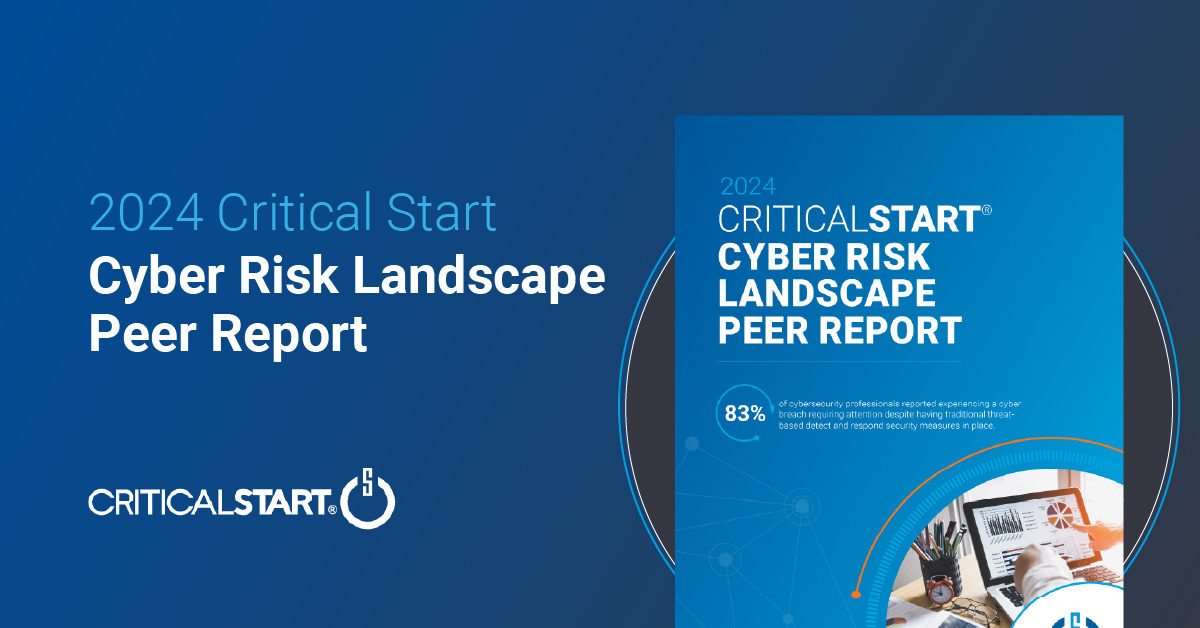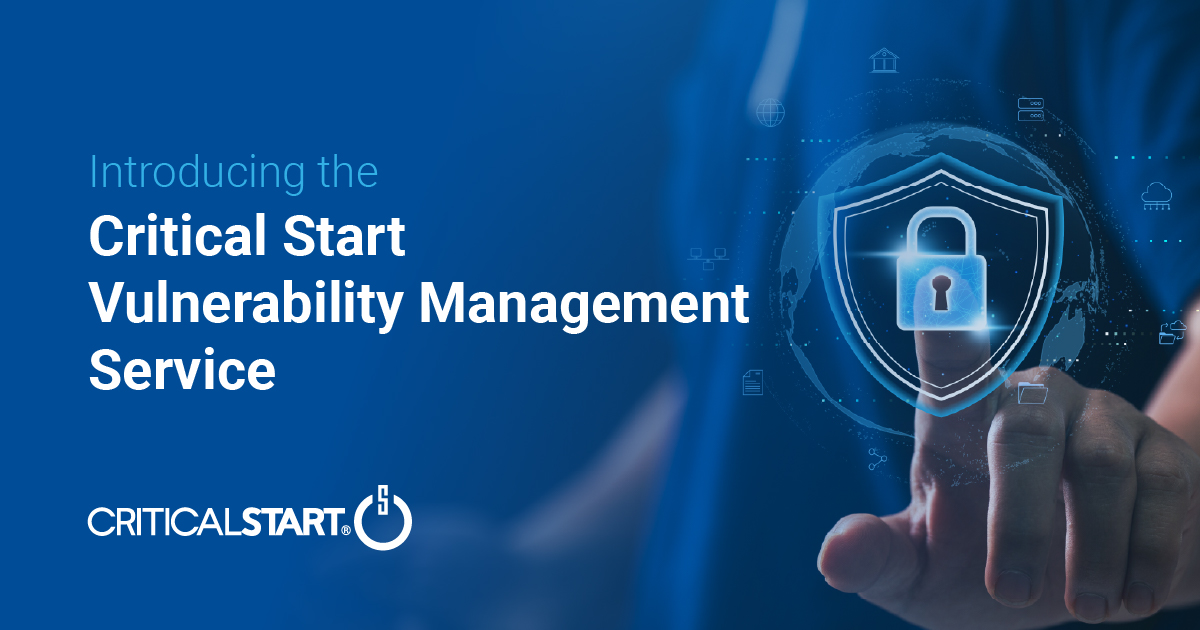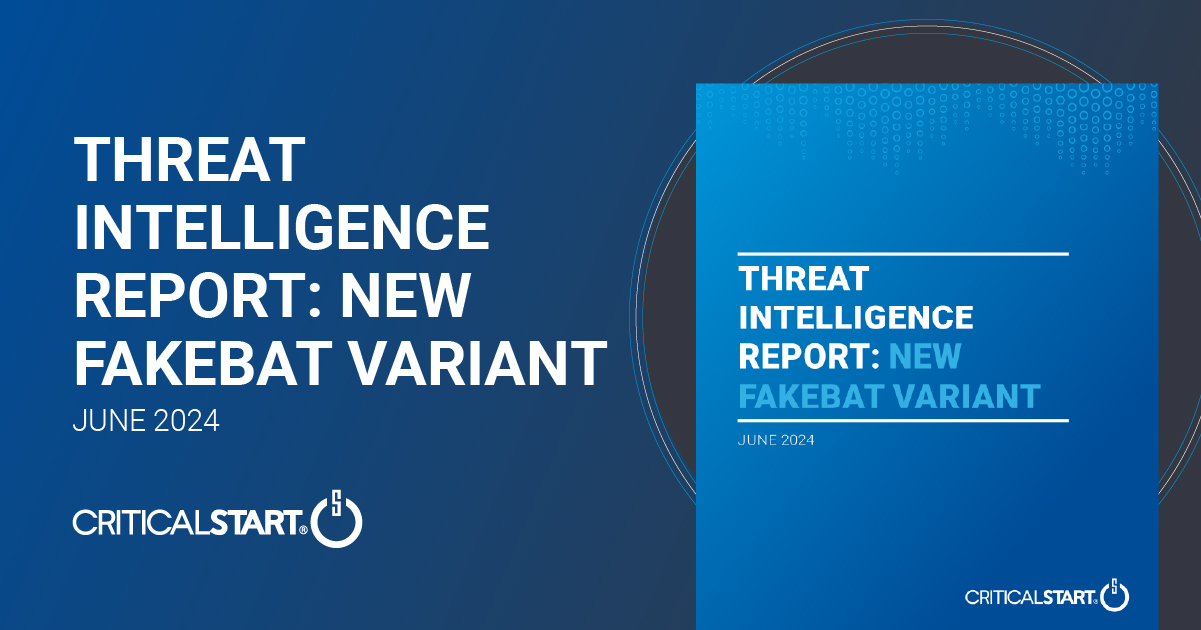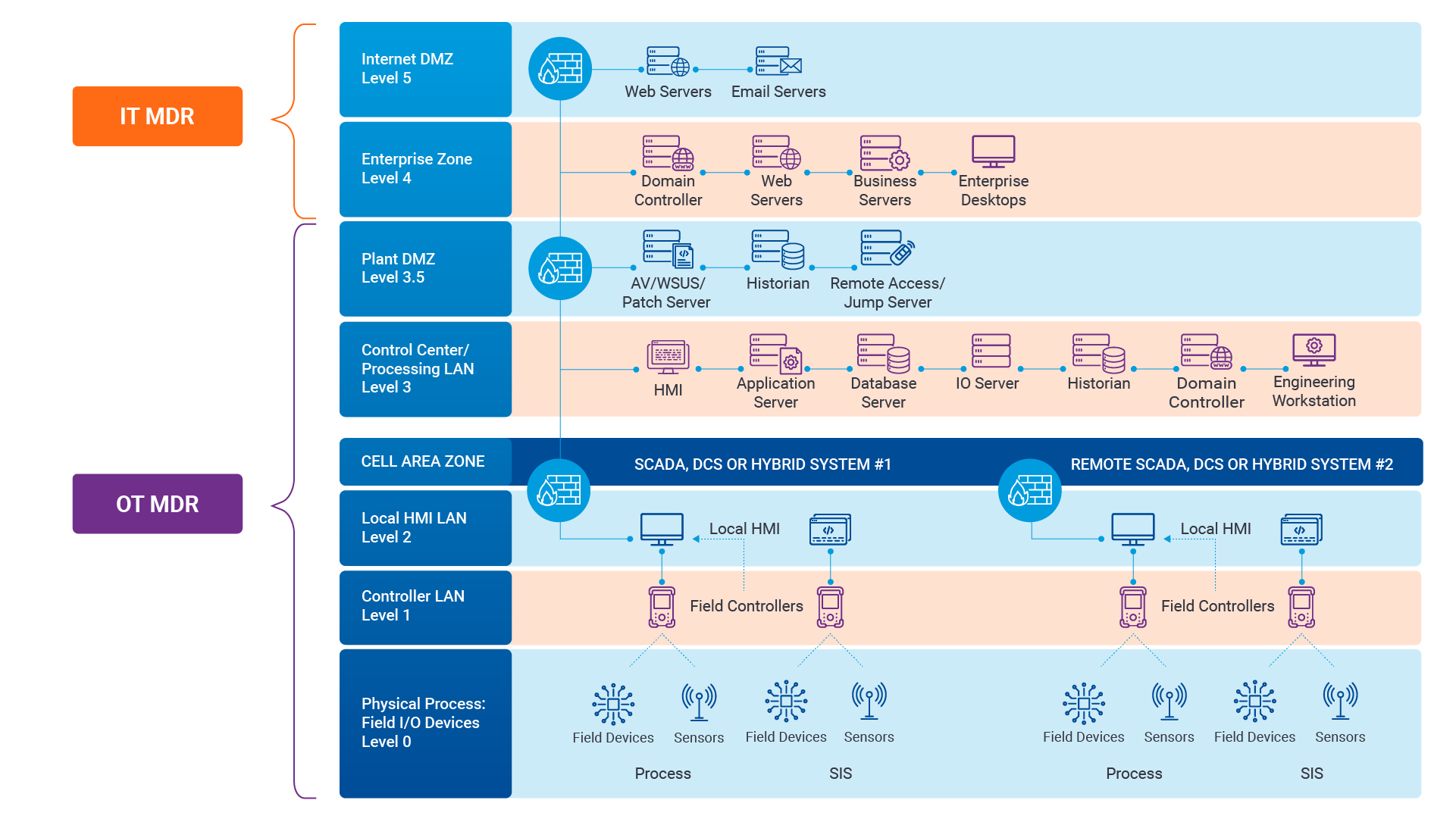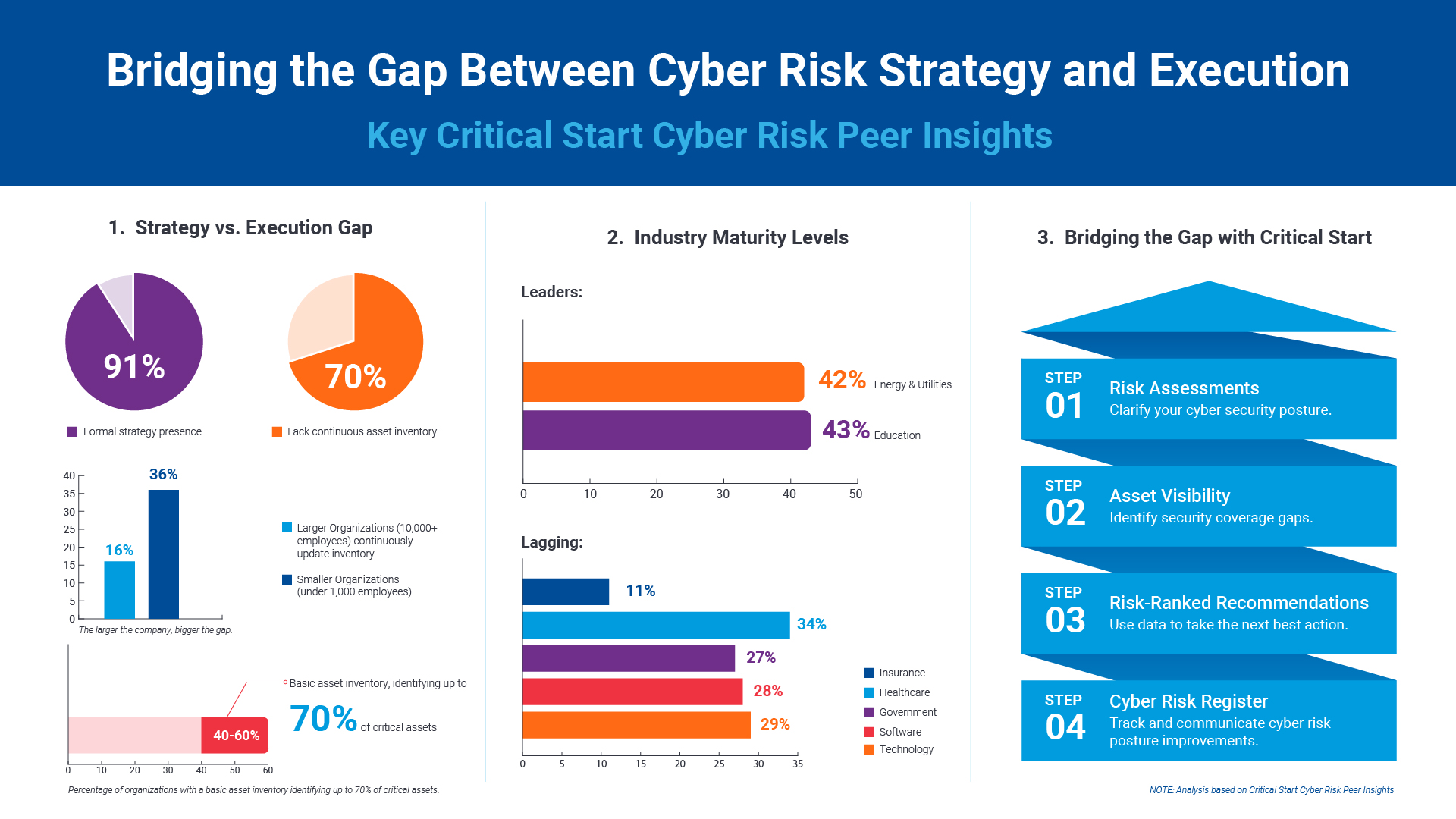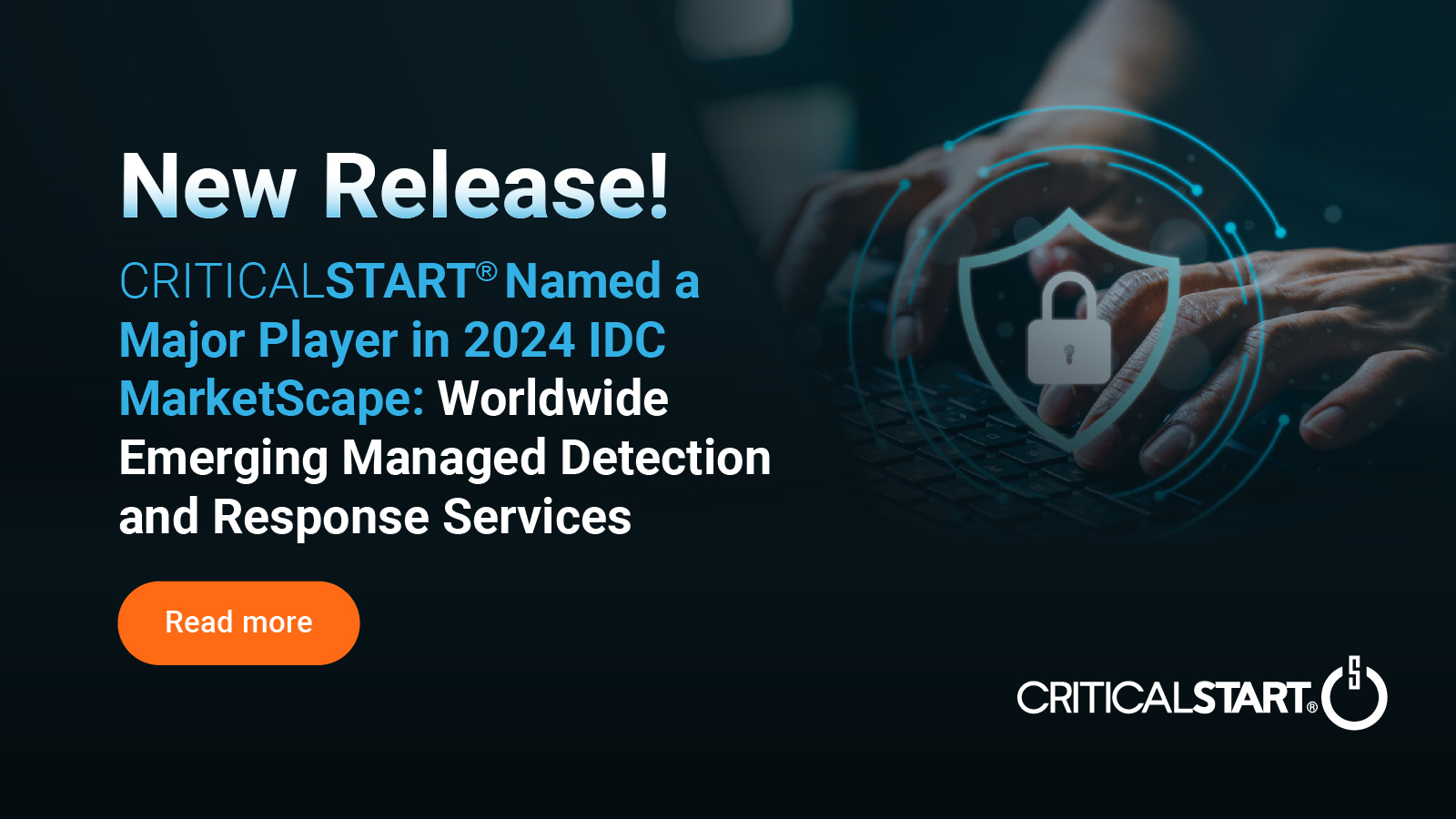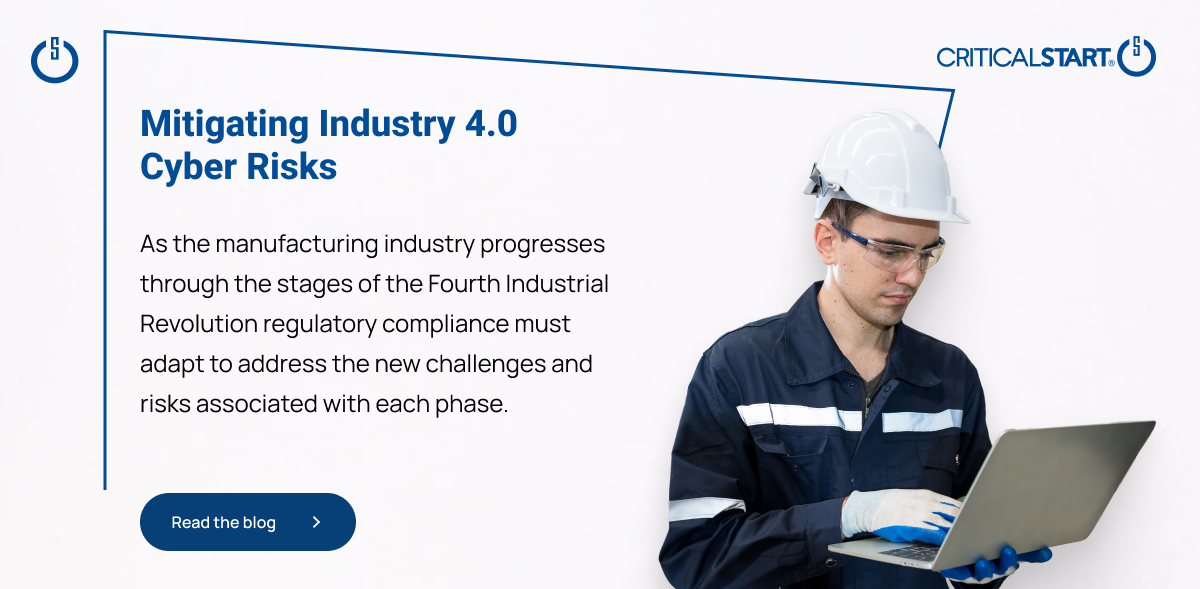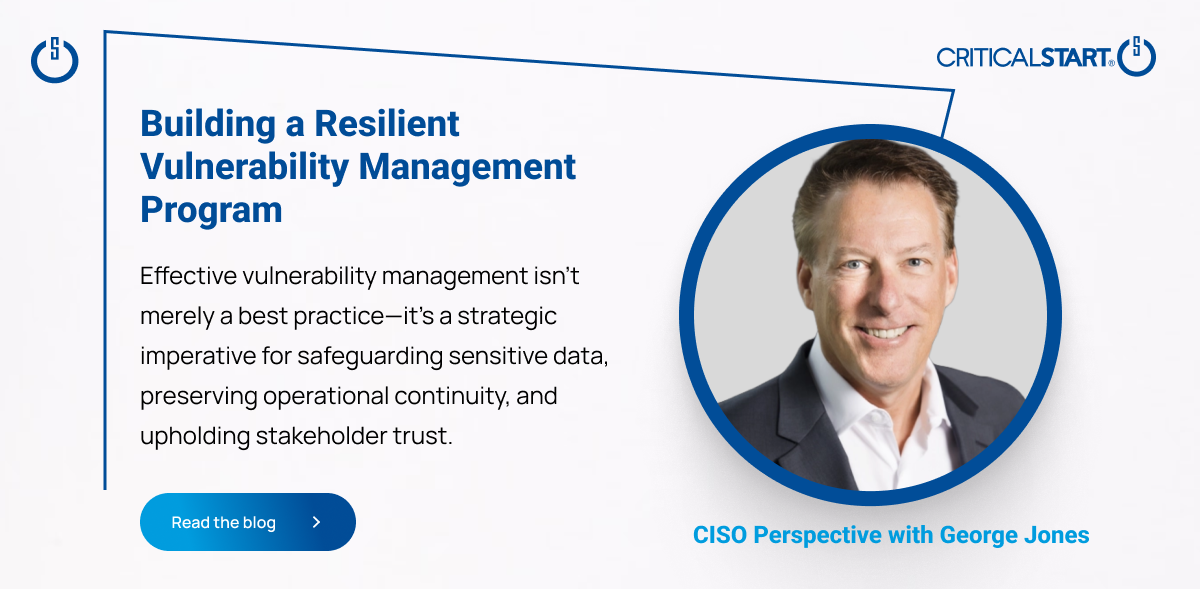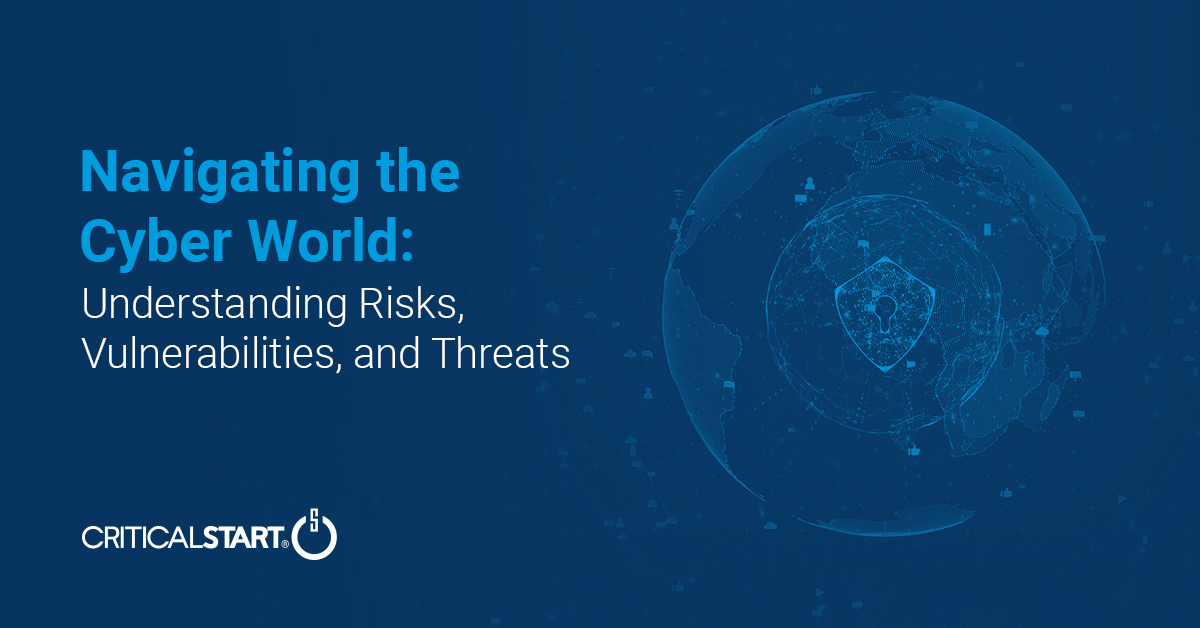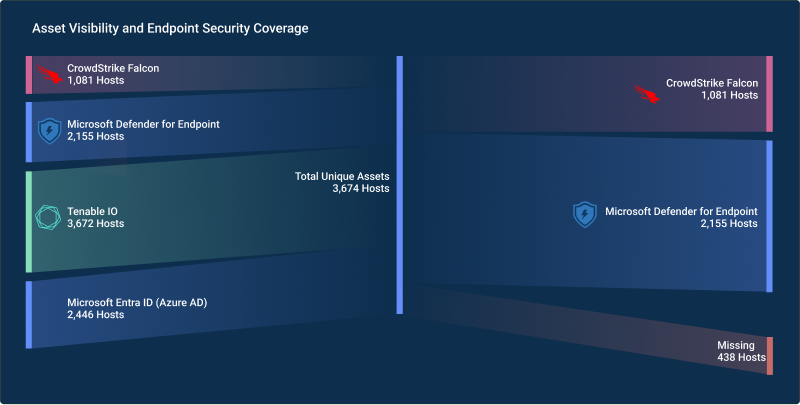An interview with Douglas Brown of Thrive Global and Authority Magazine.
As a part of my series about “Lessons From Inspirational Women Leaders in Tech”, I had the pleasure of interviewing Tera Davis. She applies more than a decade of sales and technical experience to cultivate mutually beneficial relationships with CRITICALSTART’s strategic business partners. Her expertise spans a broad range of cybersecurity technologies including threat prevention, mobile security, next-generation firewall, and threat intelligence. Throughout her career, Tera has had the opportunity to work with hundreds of manufacturers, distributors and clients.
Brown: Thank you so much for joining us in this interview series! Before we dive in, our readers would love to learn a bit more about you. Can you tell us a story about what brought you to this specific career path?
Davis: I entered network security from the industrial controls industry. My fiancé at the time worked for a cybersecurity company, and they seemed to be having fun in a lucrative field. I got an interview at a network security reseller, and the rest is history. I never looked back. It is an exciting, ever-changing industry.
Brown: Can you share the most interesting story that happened to you since you began at your company?
Davis: As one of the founding members of CRITICALSTART, I can honestly say that navigating a global pandemic has been the most interesting thing in the last 8 ½ years. Like many others, we had to quickly shift to having everyone work from home. We navigated that beautifully, allowing a seamless transition for our customers. Our ability to quickly change and adapt during a global pandemic, and many other times along the way, is one of the reasons we continue to grow so quickly. We abide by our founding principles: 1. Do what’s right for the customer. 2. Don’t do things that suck. 3. Do what’s right for the employee.
Brown: Can you share a story about the funniest mistake you made when you were first starting? Can you tell us what lesson you learned from that?
Davis: Well, I regret to say this has happened more than once — but sending an email to the wrong person can be funny or horrific! Luckily, mine have been good for a laugh on occasion. I’ve learned to slow down and always double-check that the email address didn’t automatically populate, but isn’t the one you wanted.
Brown: Can you tell us a story about the hard times that you faced when you first started your journey? Did you ever consider giving up? Where did you get the drive to continue even though things were so hard?
Davis: Having started a business, it was definitely waiting for the sales to come in to balance the outflow of cash paid to vendors. We would pay bills from our personal account and reimburse when we got payment from the customer. It was a passion for the way we were entering the market that kept everyone going. About 18 months into the journey, sales started coming in at a rate that turned things around. It hasn’t stopped yet!
Brown: None of us are able to achieve success without some help along the way. Is there a particular person who you are grateful to who helped get you to where you are? Can you share a story about that?
Davis: I have been in sales for most of my working days. I worked for someone early on that was very focused on customer follow up. He taught me to follow up with the customer even if I didn’t have an answer — just to let them know I was still engaged in the process. I adopted that, and it has helped me be very successful. People want to feel like they haven’t been forgotten. It’s a small detail that makes a huge difference.
Brown: Can you please give us your favorite “Life Lesson Quote”? Can you share how that was relevant to you in your life? “
Davis: Life is like a box of chocolates — you never know what you’re gonna’ get.” I love this because it’s true in so many ways. If you expect things to turn out a certain way, you will almost certainly be disappointed. Having wonder about what you might find along the way keeps things more interesting and positive. And, in case you think I’m just pulling a quote from a famous movie, I literally use this phrase as my status message in Microsoft Teams!
Brown: Ok super. Thank you for all that. Let’s now shift to the main focus of our interview. We’d love to learn a bit about your company. What is the pain point that your company is helping to address?
Davis: CRITICALSTART is a world-class Managed Detection and Response company. We resolve every security alert and alleviate the pain point of alert fatigue for security analysts.
Brown: What do you think makes your company stand out? Can you share a story?
Davis: We have a proprietary software platform that allows end-users to select from multiple vendors that plug into our service. That, along with our Trusted Behavior Registry (allowing us to automatically resolve what is known-good) put us in front of the competition.
Brown: Are you working on any exciting new projects now? How do you think that will help people?
Davis: COVID definitely put a damper on it, but we have a Women in Technology group that meets quarterly to discuss things that are challenges specific to women in this industry. Through those meetings, we raise funds to aid the Treasured Vessels Foundation. This organization helps teens in our community get out of sex trafficking.
Brown: Let’s zoom out a bit and talk in more broad terms. Are you currently satisfied with the status quo regarding women in Tech? What specific changes do you think are needed to change the status quo?
Davis: I actually think there are some very powerful women making huge strides in Tech right now. From my perspective, things are moving in the right direction and organizations like this that bring awareness help move the needle.
Brown: In your opinion, what are the biggest challenges faced by women in tech that aren’t typically faced by their male counterparts? What would you suggest to address this?
Davis: We have actually had this topic at one of our Women in Technology happy hours. While I think things are improving, there are some challenges that women may always face. One is coming back to a career after maternity leave. I am seeing increased numbers of men taking paternity leave, so that is encouraging. Women seem to inherently struggle more with a work-life balance. Neither of these is specific to the tech industry. At CRITICALSTART, I feel that we do an amazing job of empowering women in the workplace. Having been there for the last 8 ½ years makes it difficult for me to see the major challenges that some others might face.
Brown: What would you advise to another tech leader who initially went through years of successive growth, but has now reached a standstill. From your experience do you have any general advice about how to boost growth or sales and “restart their engines”?
Davis: Change your methodology. If you have a program or set of guidelines you’ve been using, read something new and give it a try. There are constantly evolving sales strategies out there — might just be time to shake yours up.
Brown: Do you have any advice about how companies can create very high performing sales teams?
Davis: Hold them accountable and make their compensation plan easy to understand. I have never heard more complaints and seen a more unmotivated sales team than one who cannot decipher how they are going to get paid. Good salespeople are motivated internally by the desire to make more money.
Brown: In your specific industry, what methods have you found to be most effective in order to find and attract the right customers? Can you share any stories or examples?
Davis: Honesty. That sounds simple, but so many people out there are trying to sell customers another service or another tool/product. Sometimes, doing nothing is the right answer. If you are willing to turn away a deal and show unabashed honesty, the net of that is usually a loyal customer. In the early days of CRITICALSTART, our CEO told a customer in a meeting that they shouldn’t buy the particular tool that was being pitched. Trust me, we needed those sales, but the sentiment was that the customer would end up irritated that they didn’t have the time and resources to fully utilize the tool in the long run. When they had completed some recommended tasks to get in a better place, they returned and became a happy customer.
Brown: Based on your experience, can you share 3 or 4 strategies to give your customers the best possible user experience and customer service?
Davis: For our MDR — it is all about ease of use, which is why we created a mobile app.
- Customer Service — ALWAYS get back with a customer within 24 hours. Even if your update is just to say you are still working on something, at least let them know you haven’t forgotten.
- Stand up for the customer — if there ever is a situation where a vendor isn’t being forthcoming or fair in negotiations, always fight for your customer’s best interest.
Brown: As you likely know, this HBR article demonstrates that studies have shown that retaining customers can be far more lucrative than finding new ones. Do you use any specific initiatives to limit customer attrition or customer churn? Can you share some of your advice from your experience about how to limit customer churn?
Davis: Keep them happy — it isn’t always easy, and sometimes a situation is outside your control, but that is the simplest answer. Do customer satisfaction surveys and pay attention to the answers. Make changes where necessary. A happy customer may not always say something to a colleague, but an unhappy customer almost certainly will.
Brown: Here is the main question of our discussion. Based on your experience and success, what are the five most important things one should know in order to create a very successful tech company? Please share a story or an example for each.
Davis:
- Integrity — If you don’t have integrity as the backbone of what you do, things will come crashing down like a house of cards. This goes back to my previous example of telling a customer not to buy something knowing that was the right thing to do.
- Culture — Build a business that has a culture that makes people want to work there. At CRITICALSTART, we have had countless employees hired that is a referral (and sometimes even a relative!) of a current employee. That speaks volumes about the culture we have.
- Adaptability — Don’t be too set in the ways behind how you started the business. At CRITICALSTART, we have pivoted many times with our business. We could see that a managed service would be the direction things were moving in, so we created that component to our business. We have also created many other service revenue streams seeing that selling products wasn’t going to continue to be the highest margin generator for the company.
- Honesty — This ties in with integrity, but can go a bit further. One example at CRITICALSTART is the pivot to work from home, and navigating a global pandemic. We made the promise not to cut jobs due to COVID, and we kept that promise.
- Teamwork — If you have teams of people inside the organization working against each other, you cannot achieve your goals. At CRITICALSTART, all of our teams align and work toward the common goals of the company.
Brown: Wonderful. We are nearly done. Here are the final “meaty” questions of our discussion. You are a person of enormous influence. If you could inspire a movement that would bring the most amount of good to the most amount of people, what would that be? You never know what your idea can trigger.
Davis: Honestly — I would just say that people need to spread more kindness — can we get behind that? I read something once that said “kindness is free, sprinkle that sh*t everywhere” . . . I couldn’t agree more. Do something kind for a coworker, a neighbor, a stranger — watch how it changes their demeanor . . . . and probably the rest of their day.
Brown: We are very blessed that very prominent leaders read this column. Is there a person in the world, or in the US with whom you would love to have a private breakfast or lunch, and why? He or she might just see this if we tag them.
Davis: Well, I did dance on stage once with FLORIDA — and I think it would be nice to have a follow-up conversation from that.
Brown: Thank you so much for this. This was very inspirational, and we wish you only continued success!
![]()
Ransomware in 2025: The Real Risk, the Gaps That Persist, and What Actually Works
Ransomware attacks aren’t slowing down. They’re getting smarter, faster, and more expensive. In ...![]()
Security Operations Leaders: The Chaos Is Real
If you’re a CISO, SOC leader, or InfoSec pro, you’ve felt it. Alert volumes spike. Tools multipl...![]()
Transform Vulnerability Management: How Critical Start & Qualys Reduce Cyber Risk
In a recent webinar co-hosted by Qualys and Critical Start, experts from both organizations discusse...![]()
H2 2024 Cyber Threat Intelligence Report: Key Takeaways for Security Leaders
In a recent Critical Start webinar, cyber threat intelligence experts shared key findings from the H...![]()
Bridging the Cybersecurity Skills Gap with Critical Start’s MDR Expertise
During a recent webinar hosted by CyberEdge, Steven Rosenthal, Director of Product Management at Cri...![]()
2024: The Cybersecurity Year in Review
A CISO’s Perspective on the Evolving Threat Landscape and Strategic Response Introduction 2024 has...![]()
Modern MDR That Adapts to Your Needs: Tailored, Flexible Security for Today’s Threats
Every organization faces unique challenges in today’s dynamic threat landscape. Whether you’re m...![]()
Achieving Cyber Resilience with Integrated Threat Exposure Management
Welcome to the third and final installment of our three-part series Driving Cyber Resilience with Hu...Why Remote Containment and Active Response Are Non-Negotiables in MDR
You Don’t Have to Settle for MDR That Sucks Welcome to the second installment of our three-part bl...![]()
Choosing the Right MDR Solution: The Key to Peace of Mind and Operational Continuity
Imagine this: an attacker breaches your network, and while traditional defenses scramble to catch up...![]()
Redefining Cybersecurity Operations: How New Cyber Operations Risk & Response™ (CORR) platform Features Deliver Unmatched Efficiency and Risk Mitigation
The latest Cyber Operations Risk & Response™ (CORR) platform release introduces groundbreaking...![]()
The Rising Importance of Human Expertise in Cybersecurity
Welcome to Part 1 of our three-part series, Driving Cyber Resilience with Human-Driven MDR: Insights...![]()
Achieving True Protection with Complete Signal Coverage
Cybersecurity professionals know all too well that visibility into potential threats is no longer a ...![]()
Beyond Traditional MDR: Why Modern Organizations Need Advanced Threat Detection
You Don’t Have to Settle for MDR That Sucks Frustrated with the conventional security measures pro...The Power of Human-Driven Cybersecurity: Why Automation Alone Isn’t Enough
Cyber threats are increasingly sophisticated, and bad actors are attacking organizations with greate...Importance of SOC Signal Assurance in MDR Solutions
In the dynamic and increasingly complex field of cybersecurity, ensuring the efficiency and effectiv...The Hidden Risks: Unmonitored Assets and Their Impact on MDR Effectiveness
In the realm of cybersecurity, the effectiveness of Managed Detection and Response (MDR) services hi...![]()
The Need for Symbiotic Cybersecurity Strategies | Part 2: Integrating Proactive Security Intelligence into MDR
In Part 1 of this series, The Need for Symbiotic Cybersecurity Strategies, we explored the critical ...Finding the Right Candidate for Digital Forensics and Incident Response: What to Ask and Why During an Interview
So, you’re looking to add a digital forensics and incident response (DFIR) expert to your team. Gr...![]()
The Need for Symbiotic Cybersecurity Strategies | Part I
Since the 1980s, Detect and Respond cybersecurity solutions have evolved in response to emerging cyb...![]()
Critical Start H1 2024 Cyber Threat Intelligence Report
Critical Start is thrilled to announce the release of the Critical Start H1 2024 Cyber Threat Intell...![]()
Now Available! Critical Start Vulnerability Prioritization – Your Answer to Preemptive Cyber Defense.
Organizations understand that effective vulnerability management is critical to reducing their cyber...![]()
Recruiter phishing leads to more_eggs infection
With additional investigative and analytical contributions by Kevin Olson, Principal Security Analys...![]()
2024 Critical Start Cyber Risk Landscape Peer Report Now Available
We are excited to announce the release of the 2024 Critical Start Cyber Risk Landscape Peer Report, ...Critical Start Managed XDR Webinar — Increase Threat Protection, Reduce Risk, and Optimize Operational Costs
Did you miss our recent webinar, Stop Drowning in Logs: How Tailored Log Management and Premier Thre...Pulling the Unified Audit Log
During a Business Email Compromise (BEC) investigation, one of the most valuable logs is the Unified...![]()
Set Your Organization Up for Risk Reduction with the Critical Start Vulnerability Management Service
With cyber threats and vulnerabilities constantly evolving, it’s essential that organizations take...![]()
Announcing the Latest Cyber Threat Intelligence Report: Unveiling the New FakeBat Variant
Critical Start announces the release of its latest Cyber Threat Intelligence Report, focusing on a f...Cyber Risk Registers, Risk Dashboards, and Risk Lifecycle Management for Improved Risk Reduction
Just one of the daunting tasks Chief Information Security Officers (CISOs) face is identifying, trac...![]()
Beyond SIEM: Elevate Your Threat Protection with a Seamless User Experience
Unraveling Cybersecurity Challenges In our recent webinar, Beyond SIEM: Elevating Threat Prote...![]()
Navigating the Convergence of IT and OT Security to Monitor and Prevent Cyberattacks in Industrial Environments
The blog Mitigating Industry 4.0 Cyber Risks discussed how the continual digitization of the manufac...![]()
Critical Start Cyber Risk Peer Insights – Strategy vs. Execution
Effective cyber risk management is more crucial than ever for organizations across all industries. C...![]() Press Release
Press ReleaseCritical Start Named a Major Player in IDC MarketScape for Emerging Managed Detection and Response Services 2024
Critical Start is proud to be recognized as a Major Player in the IDC MarketScape: Worldwide Emergin...Introducing Free Quick Start Cyber Risk Assessments with Peer Benchmark Data
We asked industry leaders to name some of their biggest struggles around cyber risk, and they answer...Efficient Incident Response: Extracting and Analyzing Veeam .vbk Files for Forensic Analysis
Introduction Incident response requires a forensic analysis of available evidence from hosts and oth...![]()
Mitigating Industry 4.0 Cyber Risks
As the manufacturing industry progresses through the stages of the Fourth Industrial Revolution, fro...![]()
CISO Perspective with George Jones: Building a Resilient Vulnerability Management Program
In the evolving landscape of cybersecurity, the significance of vulnerability management cannot be o...![]()
Navigating the Cyber World: Understanding Risks, Vulnerabilities, and Threats
Cyber risks, cyber threats, and cyber vulnerabilities are closely related concepts, but each plays a...The Next Evolution in Cybersecurity — Combining Proactive and Reactive Controls for Superior Risk Management
Evolve Your Cybersecurity Program to a balanced approach that prioritizes both Reactive and Proactiv...![]()
CISO Perspective with George Jones: The Top 10 Metrics for Evaluating Asset Visibility Programs
Organizations face a multitude of threats ranging from sophisticated cyberattacks to regulatory comp...![]() Datasheet
DatasheetCRITICALSTART® Advisory SOC Analyst (ASA)
Discover how Critical Start’s Advisory SOC Analyst (ASA) service adds personalized expertise to yo...![]() Datasheet
DatasheetMDR Use Cases
Discover how Critical Start MDR delivers rapid, SLA-backed threat detection and response across your...- Webinar
Are Critical Threats Slipping Through Your Defenses?
Modern security teams are buried in noisy alerts and stretched thin. Even with powerful tools like M...
Newsletter Signup
Stay up-to-date on the latest resources and news from CRITICALSTART.
Thanks for signing up!
